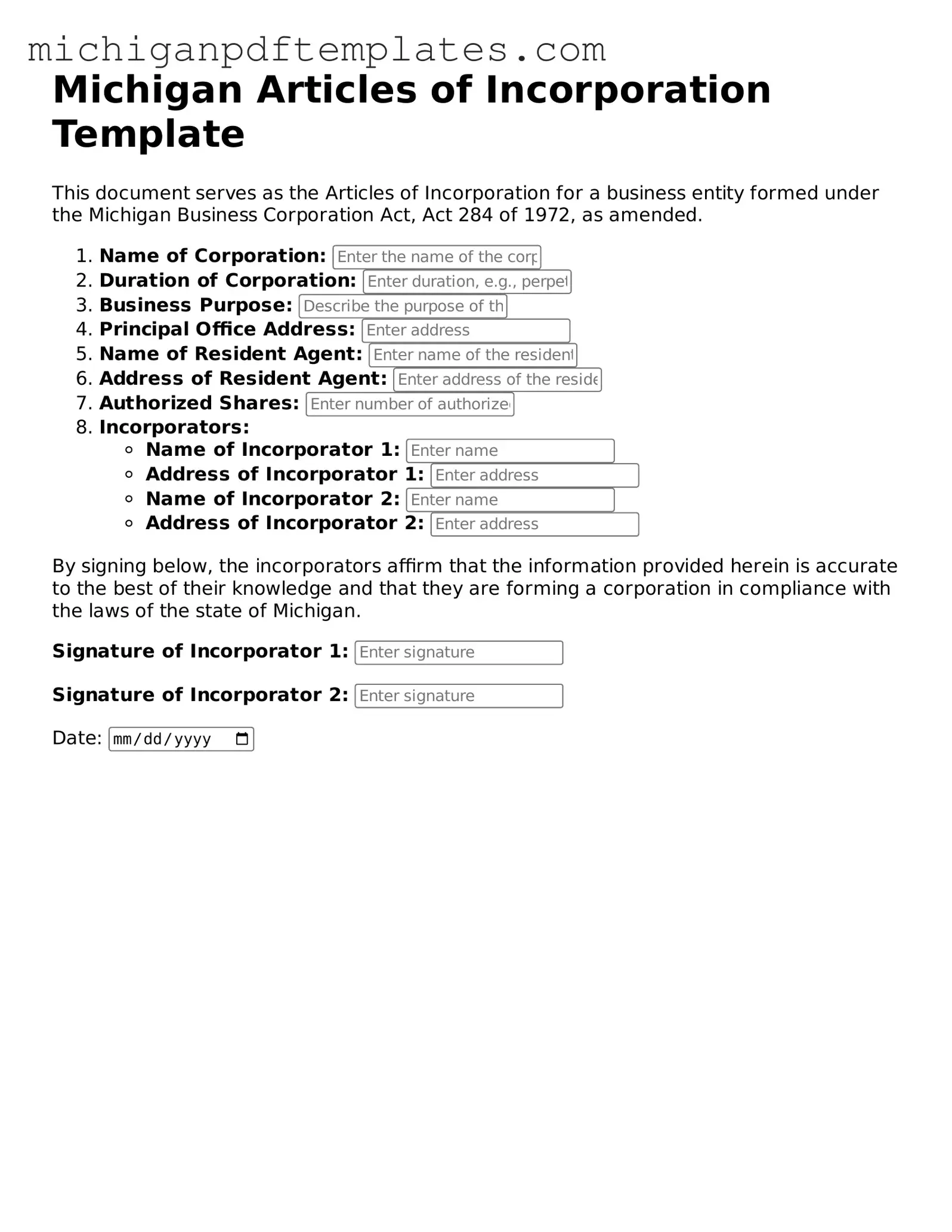Legal Michigan Articles of Incorporation Template
The Michigan Articles of Incorporation form is a legal document required to establish a corporation in the state of Michigan. This form outlines essential details about the corporation, such as its name, purpose, and the structure of its governance. Understanding how to properly complete this form is crucial for anyone looking to start a business in Michigan.
Ready to take the next step in your business journey? Click the button below to fill out the Michigan Articles of Incorporation form.
Get Your Form Now

Legal Michigan Articles of Incorporation Template
Get Your Form Now

Get Your Form Now
or
▼ PDF Form
Finish this form quickly and move on
Fill in and complete Articles of Incorporation online quickly.